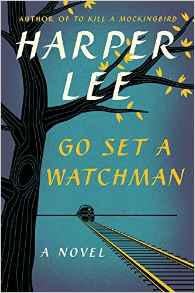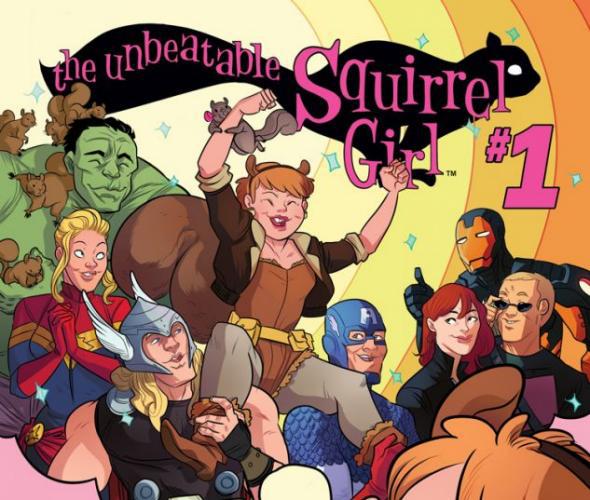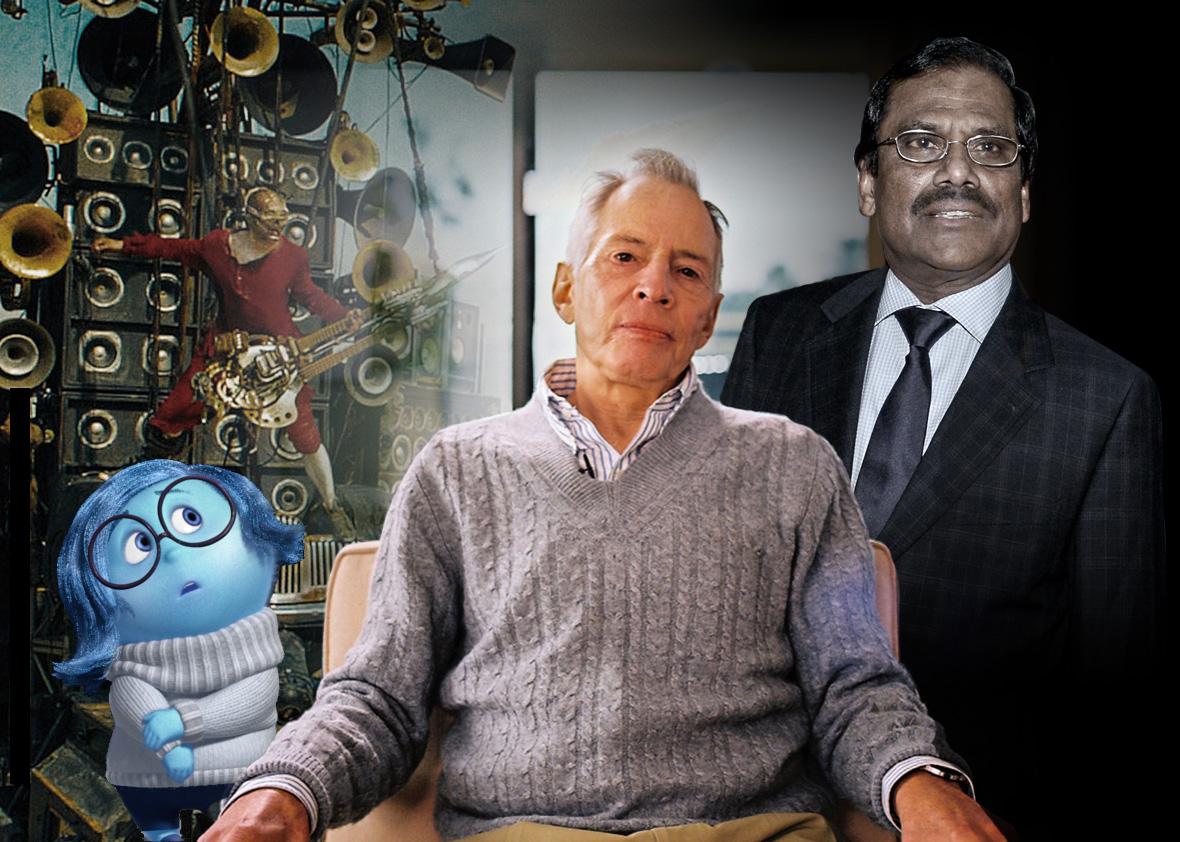The bulldozer charisma of Empire’s Cookie. The perfect narrative use of Sadness in Inside Out. The sneaky comic timing of LeBron James in Trainwreck. Tenacious, clever Pip in Jonathan Franzen’s Purity. Jessica Jones’ nightmare-inducing Kilgrave. Over the course of 2015, we’ve seen so many memorable characters, all across pop culture, from TV to music to books to movies to memes. (We’ve even published odes to some of them already, which is why they aren’t included below.) Now, as 2015 winds down, Slate staffers offer their picks for the most interesting fictional—or fictionalized—figures of the year.

HarperCollins
Racist Atticus Finch in Go Set a Watchman
You loved To Kill a Mockingbird. You read it in eighth grade. You clung to your dog-eared copy from dorm to apartment to house. You lusted after Gregory Peck (or his suit). You named your kid Harper or Atticus or Scout. Then this year came the brand-new Atticus Finch of Go Set a Watchman, who believes “the Negroes down here are still in their childhood as a people” and chairs the White Citizens’ Council. Racist Atticus Finch reminds us that in real life the Atticuses are never as perfect as they seem. Toss away that copy of Mockingbird. Start calling your kid by her middle name. And give thanks to the jerks who published this terrible rough draft of a novel for a welcome reminder that nothing good can last.
–Culture editor Dan Kois
“Taylor Swift” in Taylor Swift’s 1989 tour
This was the year when the princess of contemporary hitmaking completed her transformation from Taylor Swift to “Taylor Swift.” During her 1989 tour, whether crooning at the piano to “Wildest Dreams” or strutting down the runway to “Style” with a phalanx of models, Swift looked like a Billboard Hot 100 chart incarnate—all perfectly calibrated charm and poise, a charismatic hologram. Each time the jumbotron zoomed in on her face, she delivered a wink so crisp and crowd-pleasing that it could have been CGI’d. Even her hair seemed to have learned the choreography. “Taylor Swift” had a banner year in 2015, from her tenaciously on-message Instagram feed to the way she used other humans as props in her feminist self-branding. Take, for instance, the parade of girlfriends pushed into service as talking heads during the interstitial videos for her 1989 shows. It turned out that she was human after all: Swift, her friends revealed onscreen, “loves snacks.”
–Senior editor Laura Bennett
Robert Durst in The Jinx
When real-estate heir Robert Durst was arrested in a New Orleans Marriott last March, he was carrying a fake ID and a “flesh-toned” latex mask. While living in Galveston in 2000, he initially disguised himself as a mute woman. Although Durst—the subject of HBO’s riveting documentary, The Jinx—is real enough to be suspected of committing three murders, he is also a fiction of his own devising, right down to the special Japanese “doe-eye” contact lenses some viewers of The Jinx insist he was wearing during his recorded interviews with director Andrew Jarecki. (The lenses are supposed to make you look innocent.) And he is a fiction of Jarecki, too—whose canny (and some say, journalistically questionable) editing helped make Durst so scary and vivid. There was perhaps no character whose workings we puzzled over, doubted, or talked about more in 2015, no doubt because we sense that when it comes to Robert Durst, we’ll never be able sort out the real from the fake.
–Books and culture columnist Laura Miller
Titus Andromedon in Unbreakable Kimmy Schmidt
How many times have I watched “Peeno Noir“ (an ode to the black penis)? I have no idea. It doesn’t matter. I laugh out loud every time. In fact I lol’d at practically everything Titus, Kimmy Schmidt’s newfound best friend and roommate, did in Season 1, whether he was catching Kimmy up on all of the pop culture she missed out on while trapped in a bunker for 15 years (“What’s Tilda Swinton?” … “No one knows”) or accompanying her to the trial of her captor in Indiana (“For her sake, I’ll take all of the attention, all of it!”). Yet he’s more than just the “black gay best friend.” He’s a lot more complicated than that, with issues of his own to sort out: chasing his dream of being on Broadway, and failing at it, spectacularly; singing “I’ll Make Love to You” at a stranger’s funeral; realizing that he gets treated better as a werewolf than as a black man. Titus is the perfect blend of snark and earnestness—we’d all be lucky to have him as a friend.
–Staff writer Aisha Harris
Doof Warrior aka Guitar Guy in Mad Max: Fury Road
The first time we see Doof Warrior, he is wearing a red onesie and absolutely shredding a flame-throwing electric guitar. Immortan Joe and the War Boys are caravanning into battle against Imperator Furiosa. We hear revving engines and the pounding of drums and then there he is: hooked to the front of a massive rig by bungee cords and leaping around like Angus Young. It is thrilling. Doof Warrior has zero lines, but he represents everything that makes Mad Max great: its atmosphere of controlled chaos, its self-consciously macho excesses, its crazy-eyed intensity, its sick sense of humor. His job may be to psych Immortan Joe’s army up for combat, but he sets the tone of the whole movie, too.
–Senior editor Laura Bennett
Pizza Rat
This fall, Pizza Rat burst into our collective consciousness like some beautiful comet dragging a slice of pizza down the steps of an East Village subway station. He burned hard and bright, and vanished too quickly. Where does Pizza Rat make his home? Does Pizza Rat have a family? Where did he find an uneaten slice of cheese pizza? But gods do not answer letters, and like all great heroes, Pizza Rat is perpetually just out of reach. His true gift to us is what we make of him, as a vessel for our own longing. In the days and months since he graced us with his virality, I’ve wondered after his current state, if his little rat brain comprehends the magnitude of his own deeds, if he’s tasted more pizza, if he’s even still alive. But of course he is; Pizza Rat lives in each of us.
–Pop critic Jack Hamilton
Viago in What We Do in the Shadows
It’s a scene familiar from a thousand vampire tales: The undead, soulless monster has lured a hapless human into his lair. At the moment of highest tension, he strikes, sinking his fangs deep into the neck of the victim; our horror mixes with fascination at the cruel intimacy of the moment, a lover’s act of passion stripped of all feeling but hunger. However! When Viago, the fussy vamp played by Taiki Waititi, who also directed the New Zealand mockumentary What We Do in the Shadows, entraps his prey, it just goes very badly all around. He manages to get a fang into the gal’s neck, but then the victim jerks away, and poor Viago gets a real face-full of blood, a jet right in the ol’ kisser. He does his best to treat the gal like a drinking fountain but she’s down in just a few seconds, and Viago’s stuck with a sticky bedroom, some ruined going-out clothes, and a rumbling stomach. Being undead is tough to get a hang of, even 379 years into it.
–Culture editor Dan Kois

Grove Press
The Hawk in H is for Hawk
A “reptile.” A “fallen angel.” A “spooky pale-eyed psychopath” with “armoured pianist fingers.” A “whirring, chaotic clatter of wings and feet and talons,” whose brilliant presence “filled the house with wildness as a bowl of lilies fills a house with scent.” “The birdwatchers’ dark grail,” “all shaggy trousers and waggy tail,” who can pass “slant-wise into nothing” through a rent in the sky. No character this year has been quite as vivid or haunting as Mabel, Helen MacDonald’s hawk in H is For Hawk.
–Words correspondent Katy Waldman
Decker in On Cinema
As of this past July, every practicing comedian in the United States is required by law to have a half-decent Donald Trump impression. But first there was Decker, the Trump-inspired secret agent persona of “Tim Heidecker,” himself a fictional movie reviewer played by the real Tim Heidecker on On Cinema. On Cinema began as a perfect, vacuous independent podcast in 2011 and was picked up by Adult Swim as a TV series in 2013; Decker is the sublimely inept political thriller created by “Heidecker” in 2014 with assistance from co-host “Gregg Turkington” (Gregg Turkington, now starring in Entertainment). It’s pure, absurd wish fulfillment, the crazy dream of a right-wing buffoon who wants nothing more than to save the country from terrorists. Watch as Heidecker nails Trumpism—its pessimism, its arrogance, its creepy rictus—months before Trump surged in the polls. And don’t miss the wacko editing: it’s the best part.
–Assistant interactives editor Andrew Kahn
Lafayette in Hamilton
America has always loved the Marquis de Lafayette, who became a national hero after fighting for the Continental Army in the Revolutionary War. But no incarnation of Lafayette has ever been quite as lovable as the one portrayed by Daveed Diggs in the wildly acclaimed Broadway musical Hamilton. Lafayette is a supporting character, and he disappears in Act II (when the multitalented Diggs shows up as Thomas Jefferson instead). But in Diggs’ few scenes as Lafayette, there is no one more electrifying onstage, not even the show’s brilliant creator and star, Lin-Manuel Miranda. A major part of the appeal is Diggs’ unrivaled flow—as a professional rapper, he can spit verses at twice the pace of his musical-theater-trained costars. But it’s Diggs’ so-bad-it’s-good French accent that makes his delivery such a thrill to listen to, with swaggering lines like “I’m takin’ this horse by the reins makin’ redcoats redder with bloodstains.”
–Associate editor L.V. Anderson
Bevers in Broad City
Broad City is the funniest show on TV, largely due to the talents of the show’s breakout co-stars, Abbi Jacobson and Ilana Glazer. But the supporting characters are miracles in themselves, and this past season, none more so than Matty Bevers, the sadsack mooch boyfriend of Abbi’s never-seen roommate who is played with astonishing commitment by John Gemberling. Bevers is some perfect ideal of The Worst Dude, a helpless, self-absorbed, sexually debased baby-man who stews in his own filth and lives off the unwilling largesse of others. Although he debuted in 2014, Bevers reached uncharted heights/depths this past year. The second episode of the second season featured a sequence in which Bevers spills a mochalatta on the floor of the apartment, bends over to reveal a bedsore (“couchsore”), then self-righteously lectures Abbi about disaster relief. It is the hardest I laughed while watching television in 2015. We’re socially encouraged to see Bevers as a nightmare, but he may in fact be the dream.
–Pop critic Jack Hamilton
The Celebrity Nanny
In the supermarket aisle, she is known only by her line of work. This year she has starred in such tabloid tales as “Gwen & Gavin: He Cheated With Their Nanny!,” “Jen In Shock: He’s Dating The Nanny!,” and “Chrissy Teigen’s One Rule for John Legend: ‘No Hot Nannies’.” She has engaged in sensual relations with the famous father of the children she babysits. When an alleged affair between Ben Affleck and nanny Christine Ouzounian hit headlines, Ouzounian strode into the eye of the media storm with the unprecedented attitude of apologetic delight—she arrived outside Affleck’s home with a bottle of Champagne, led a parade of paparazzi from the black leather seat of her brand-new Lexus convertible, and Instagrammed a casual pic of herself lounging on a private jet, her right hand weighed down by Affleck buddy Tom Brady’s complete collection of Super Bowl rings. Then there was Mindy Mann, nanny to ’90s alt-rock couple Gwen Stefani and Gavin Rossdale, whose dalliance with Rossdale allegedly revealed itself when an automatic sync between Rossdale’s iPhone and the family iPad interrupted Stefani’s casual browsing with a graphic sext sent from the caregiver to Rossdale. Is the celebrity nanny who sleeps with dad a victim of workplace sexual harassment, or just bad at her job? One thing is for sure: This year she came into her own, revealing herself to be a much more complex character than we thought.
–Staff writer Amanda Hess

Marvel Comics
Squirrel Girl in The Unbeatable Squirrel Girl
Squirrel Girl, alias Doreen Green, is here to “kick butts and eat nuts,” and she’s easily one of the best superheroes Marvel has produced in years. She’s smart (a computer science major), ridiculous (her squirrel sidekick is named Tippy-Toe), and dispatches bad guys with a combination of karate kicks and clever negotiation—for instance, she suggests that one villain hunt giant whales in lieu of squirrels, and he grudgingly agrees. Her series, The Unbeatable Squirrel Girl, was released last January and met with rave reviews mostly because its hero is so likable, but also because its smart, straightforward plotlines recall Sunday cartoons of yore. Artist Erica Henderson renders Squirrel Girl and company in clean, rounded lines and a palette of cool indigoes and pastel greens, and writer Ryan North makes sure she’s equipped with a steady stream of one-liners. She’s bold, hilarious, body positive, and supremely self-confident—and she always wins.
–Culture intern Claire Landsbaum
Rebecca Bunch in Crazy Ex-Girlfriend
Rebecca Bunch, the protagonist of CW’s eccentric and delightful new musical comedy Crazy Ex-Girlfriend, is crazy in a way that’s unprecedented onscreen. Rebecca (played by co-creator Rachel Bloom) is desperate for a man who’s not interested in her, a situation that’s usually played for shallow laughs at the oblivious woman’s expense. But instead of always making Rebecca the butt of the joke, the show encourages us to question why we’re so eager to laugh at a troubled woman. Crazy Ex-Girlfriend delves into Rebecca’s fraught relationship with her parents and the unrealistic messages about beauty, friendship, love, and sex she’s absorbed from a toxic culture. (Rebecca envisions her lithe romantic rival taunting Rebecca with imaginary boasts like “Butt stuff doesn’t hurt at all, most times I prefer it” and “I orgasm instantly.”) The writing is so sharp and empathetic that at least once per episode, you’ll find yourself in the uncomfortable position of relating to the insensitive, narcissistic, deeply neurotic Rebecca.
–Associate editor L.V. Anderson
Aziz’s Dad in Master of None
When we first meet Master of None’s Shoukath Ansari, Aziz’s real-life and also TV father, he’s fiddling with an iPad, seemingly acting out the tech-troubled dad trope. From there, the clichés only accrue: a clipped accent, an arranged marriage, a flashback to dusty Indian streets. And yet Aziz’s dad was the casting coup of the year, and one of 2015’s most joyful and charming characters. As the father of Dev (Aziz), Shoukath essentially plays himself, and some found his stiff delivery and unpracticed air to be awkward. But for any child of immigrants, he’s awkward in a profoundly familiar way. And when he’s funny—which he often is, due to some terrific, confident, off-kilter timing—he’s the most entertaining person on a show full of entertaining people. The elder Ansari embodies all the wit, warmth, and radiant humanity that made Master of None the year’s best binge, and his performance proved that good representation doesn’t reject stereotypes: It just couples them with real, complex, open-hearted people.
–Brow Beat writer Sharan Shetty
Larry David as Bernie Sanders on Saturday Night Live
Larry David as Democratic presidential candidate Bernie Sanders may be the best non-impression impression in the history of Saturday Night Live. In SNL cold opens that spoofed the CNN Democratic debate and the MSNBC forum, Larry David played Larry David—which just so happened to be the best possible Bernie Sanders impression. Both have cotton ball puffs of white hair, square-rimmed wire glasses, prominent ears, and a tendency to gesture haphazardly while saying things like “I’m fine, I’m fine, I’m hungry, but I’m fine.”
–Culture intern Claire Landsbaum
